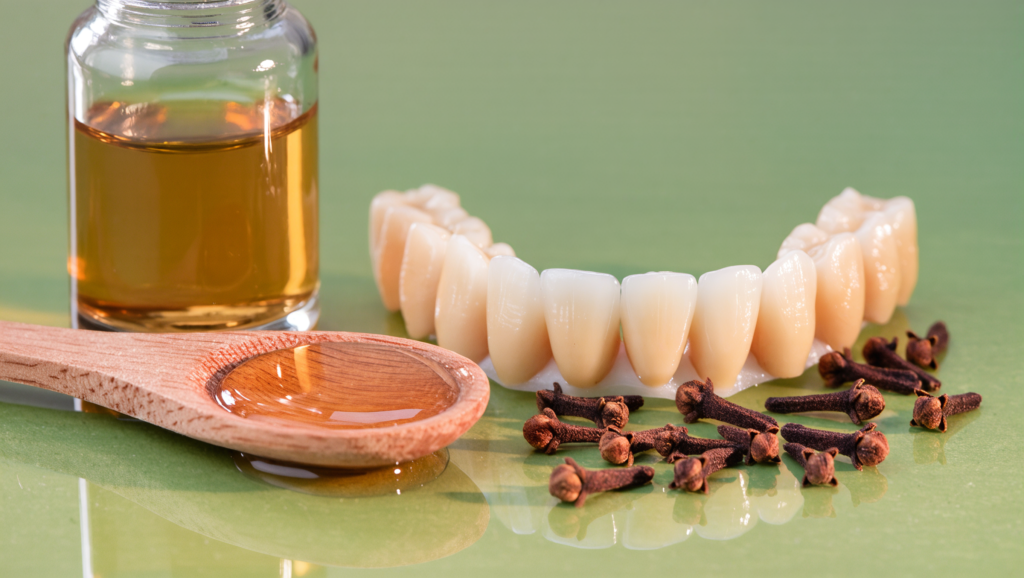If there’s one spice that makes both your grandma and your dentist sit up and take notice, it’s clove. Generations have sworn by the tiny, aromatic buds—especially for pesky toothaches and fresh breath. But modern science is catching up, and it’s starting to look like chewing a clove a day could be a ridiculously simple hack for your dental and overall wellness. And don’t even get us started on clove oil! Wondering how this old-school remedy became a modern superstar? Let’s break down exactly why you should add cloves to your daily routine, how to use clove oil for dental rescue, and what the science really says about these mighty little buds.
Chewing Clove Daily: The Science-Backed Benefits
1. Natural Antibacterial Powerhouse
Let’s start with the bugs. Your mouth is a crossroads for bacteria—some good, some very, very bad (hello, cavities and gum disease). Cloves are loaded with eugenol, a natural oil with both antibacterial and anesthetic superpowers. Regularly chewing a clove every day helps take down nasty bacteria, freshens breath, and gives your gums a much-needed defense boost.
“Cloves’ antioxidants prevent chronic illnesses, their antibacterial properties guard against infections, and they enhance dental health,” notes a dietitian in the Times of India.
A daily clove can help fight bacteria that cause cavities, gum disease, and even reduce the risk of infections if you’ve got oral sores or wounds.
2. Toothache & Gum Relief—Without a Dentist’s Drill
Got a throbbing tooth? Ancient wisdom says, chew a clove! Modern dentists agree—the eugenol in cloves not only numbs the pain (yes, naturally!) but also tackles the underlying bacteria causing it. In fact, dentists have used clove oil in fillings and temporary dressings for over a century for its pain-relieving and antibacterial properties.
Chewing a whole clove near the sore spot releases its oils right where you need them, bringing quick comfort and helping with swelling, soreness, or irritated gums.
3. Freshens Breath—And Fights Bad Breath at Its Source
Forget chemical-laden breath mints. When you chew a clove, its spicy oils freshen your mouth while obliterating the bacteria that actually cause bad breath. The result? Not just minty coverup, but true oral freshness that lasts.
4. Aids Digestion and Protects the Gut
Cloves don’t stop working after your mouth—chewing a clove stimulates saliva (goodbye, dry mouth!), helps reduce acidity, relieves bloating, and can ease nausea or that “off” feeling after a big meal. Their anti-inflammatory properties are a bonus for those who struggle with indigestion.
5. Joint Pain, Immunity, and More…
The anti-inflammatory magic of cloves helps with more than just teeth. Chewing a daily clove can subtly reduce inflammation throughout your body, from sore joints to stuffy sinuses. Their antioxidants help neutralize free radicals, boost immunity, and even play a small role in supporting healthy blood sugar and cholesterol.
6. Liver Love
Dried clove buds are linked to supporting liver health, helping new cell growth, and aiding in liver detox because of their potent plant compounds like thymol and eugenol.
The Real Secret Sauce: Clove Oil for Tooth and Gum Rescue
If chewing a clove is daily maintenance, clove oil is your emergency kit. When toothaches strike or your gums get inflamed, clove oil steps up as a powerful, concentrated, natural remedy.
How Does Clove Oil Help?
- Numbs pain: Eugenol is a natural anesthetic, numbing nerve endings and providing almost instant relief.
- Reduces inflammation: It helps decrease swelling, redness, and irritation in gums and oral tissues.
- Kills bacteria: Its potent antibacterial action wipes out the germs that cause dental infections, decay, and mouth ulcers. In studies, clove oil has killed not only oral bacteria but also yeast and fungal infections in the mouth.
“Clove oil’s antibacterial properties help combat the bacteria responsible for dental infections and cavities. Regular use can reduce the bacterial load in the mouth, promoting better oral hygiene and preventing dental issues,” reports Dentistry for You and Sand Springs.
How to Use Clove Oil for Dental Health
- Direct Application: Mix a few drops of clove oil with a teaspoon of a carrier oil (coconut or olive oil). Dip a cotton ball in the mixture and place it gently on the affected tooth or sore gum area for 15-20 minutes.
- Mouth Rinse: Add a few drops of clove oil to a cup of water and use as a mouthwash after brushing.
- Toothpaste Additive: Add a drop of clove oil to your toothpaste before brushing for an extra antibacterial kick.
- Oil Pulling: Mix a few drops into coconut oil, swish in your mouth for 10-15 minutes, then spit (never swallow!).
Beyond Toothaches: Surprising Uses for Clove & Clove Oil
- Cavity prevention: Reduces plaque, supports remineralization, and fights decay-causing bacteria.
- Mouth ulcers & gum health: Heals sores and soothes inflamed gums, making it useful for gingivitis and early periodontal disease.
- Whiter teeth & fresher breath: By fighting bacteria, it can help preserve a brighter smile and eliminate bad breath causes.
- Antifungal and antiviral properties: Useful against oral thrush (a common mouth yeast infection) and potentially even some viruses.
The Science: What Do Studies Really Say?
- Antibacterial Action: Clove oil fights a broad spectrum of bacteria—including those behind tooth decay and gum infections.
- Analgesic & Anesthetic: Eugenol in clove oil provides pain relief and is still used in dental practices today.
- Remineralizing Teeth: Some studies found clove oil helps prevent tooth decalcification (like fluoride, but less toxic!), supporting stronger enamel.
- Low Toxicity: When used correctly, clove oil is significantly less toxic than high concentrations of fluoride or some synthetic chemicals often used in dental care.
Are There Any Risks With Using Clove and Clove Oil?
- Clove (bud) in moderation is very safe—just don’t overdo it. Too much can irritate mouth tissues or upset the stomach.
- Clove oil is POTENT and should always be diluted before use. Never apply pure clove oil directly to your mouth or swallow it.
- Allergies are rare but possible. Start slow and watch for burning or irritation.
- Children and pregnant women should use clove oil only under medical supervision.
The Bottom Line: Why Chew Clove & Use Clove Oil?
Simply put, chewing a clove (or two) daily is one of the oldest, simplest, and best science-backed tricks to naturally protect your teeth, gums, breath, gut, and even overall inflammation—a trick that leaves many dentists, well, a little nervous. And when the pain hits? Clove oil is your homemade, science-approved dental first aid kit.
So next time someone asks why your breath’s so fresh or your smile’s so bright, just wink and pass the clove bowl—nature (and maybe your dentist) will thank you.
References
- [NCBI: Bioactive properties of clove]pmc.ncbi.nlm.nih
- [NCBI: Clove essential oil in dental mineralization]pmc.ncbi.nlm.nih
(Disclaimer: This article of for information purposes only, Consult a doctor before trying new remedies.)








